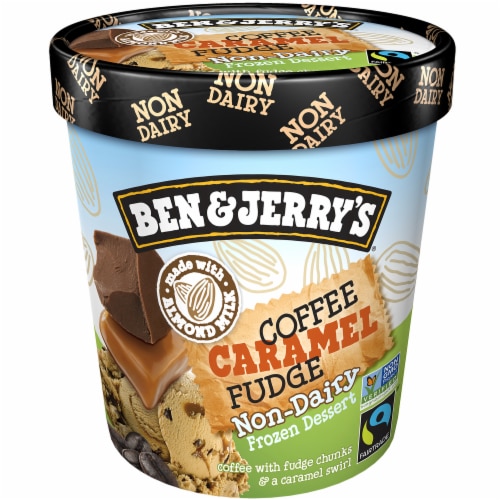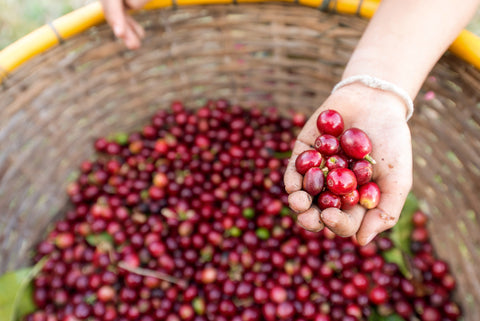Humans have been enjoying the delightful taste and caffeine boost of coffee for centuries. Whether it's a morning ritual or mid-day pick-me-up, millions around the world depend on coffee to power their day. As veganism continues to gain momentum, many coffee enthusiasts have begun asking if their beloved beverage can still fit into a plant-based lifestyle. The primary question that arises here is: "Is coffee vegan or not?". It's an understandable concern, as certain additives and processing methods may void coffee of its vegan status. In this article, we'll investigate whether coffee is vegan or not and discuss ethical coffee consumption practices to give you the knowledge to make an informed decision when ordering your next cup of joe. We will also explore Dairy-free coffee to provide insight into what makes coffee potentially non-vegan or vegan, how to ensure ethical consumption of coffee, and which non-animal derived additives can make your beverage vegan-friendly.
I. What Makes Coffee Potentially Non-Vegan?
Coffee in its purest form, made from roasted coffee beans, is vegan. As a plant-based product with no animal-derived ingredients, coffee brewing can be non-vegan due to additives and processing methods used. There are several reasons why this could be the case and not suitable for those following a plant-based lifestyle.
-
Dairy-Based Coffee Additives
Dairy-based coffee additives are available to add dairy creamer or cream to coffee drinks for an added creamy sweetness.
Milk or cream are often added to coffee to mask its bitter taste, and many coffee shops and restaurants offer dairy milk for customers to add into their drinks. Unfortunately, milk and cream are not vegan-friendly since they originate from cows - exploitation which goes against vegan principles. In addition to cow's milk, many shops also provide other animal-derived milks like goat milk which also do not meet vegan requirements.
-
Non-Vegan/Harmful Sweeteners
Non-vegan and harmful sweeteners can be problematic for vegans and other health enthusiasts.
Another potential non-vegan additive in coffee is sweeteners. While sugar, which is a popular sweetener choice, is vegan, it may not always be true for other sweeteners like honey which bees produce. Honey is commonly found as an ingredient in many coffee creamers due to its large quantity consumption.
Additionally, certain artificial sweeteners used as coffee additives, such as aspartame, saccharin and sucralose, which are not animal-derived but potentially hazardous to human health, have been linked to acute lymphoblastic leukemia and non-Hodgkin's lymphoma, alongside side effects like migraine or depression.
-
Non-Vegan Additives
Coffee often contains non-vegan additives. Fish bladder or isinglass, used for clarification in the brewing process, are not vegan. Gelatin may also be added as a clarifier and to create foam in milk; however, gelatin derives from animal connective tissues and bones and thus cannot be vegan.
In conclusion, it's evident that certain additives in coffee can make it non-vegan. Although not all non-vegan additives are harmful for human health, vegans must always remember that any non-vegan addition goes against their plant-based lifestyle and directly impacts both customer health and the vegan cause. Therefore, consumers must inquire about ingredients used before ordering coffee from restaurants or cafes; thankfully there are vegan alternatives which offer delicious flavor while staying health conscious.
II. Vegan Coffee Creamer Options
Are you searching for vegan-friendly coffee creamer options? Look no further - here!

For those who enjoy a creamy and sweet taste in their coffee, dairy-based coffee creamers may not be an option. Fortunately, vegan alternatives exist that provide the same creamy sensation without using animal products. Here are some options to consider:
-
Coconut Milk Creamer
Coconut milk creamer is an increasingly popular vegan choice that's both creamy and flavorful. Made from the flesh of coconuts combined with water, it is free from animal products. Coconut milk provides a rich, velvety texture perfect for coffee drinks; one can buy pre-made creamers at the store or make it at home with minimal effort.
-
Soy Milk Creamer
Soy milk creamer is a popular plant-based option for creamer, especially for lactose intolerant individuals. Made from soybeans with natural flavorings added, soy milk has an ultra smooth and creamy consistency - ideal for vegan coffee creamer recipes or making homemade soy creamer by blending together soy milk and natural sweetener. Soy creamer can easily be made at home by simply blending together the two ingredients: soy milk plus natural sweetener.
-
Almond Milk Creamer
Almond milk creamer is dairy-free and vegan, made with almonds, water, and natural flavors. Not only does it add a light nutty taste to coffee but it's often low in calories too - perfect for those who have nut allergies (although some may need to avoid almonds due to allergies). Additionally, almond milk creamer makes for an excellent dairy alternative as well.
-
Oat Milk Creamer
Oat milk creamer is a vegan alternative to dairy milk that's made with whole-grain oats and filtered water, sometimes sweetened naturally. This plant-based milk choice is free from lactose and nuts while providing plenty of fiber, protein and other essential nutrients. Oat milk provides an irresistibly rich and creamy flavor when added to coffee or baking recipes - perfect for coffee connoisseurs!
In conclusion, coffee lovers who follow a vegan lifestyle don't need to worry about skipping out on cream and sugar in their morning cup of joe. There are plenty of vegan-friendly options they can select from; plant-based creamers make your coffee taste creamy, smooth, and flavorful; you can find vegan creamers in supermarkets, stores or make them yourself at home. So the next time you order coffee - don't be shy about asking for plant-based options for the creamer - don't feel obligated to order something special!
III. Ethical Coffee Consumption
Are you interested in ethical coffee consumption? Here is some guidance.
Coffee production often takes place in countries with cheap labor and no fair labor laws, leading to an association of exploitation, low pay, and unfavorable working conditions. Over the last decade however, sustainable and ethical sourcing has seen significant progress with consumers becoming more informed about the ethical implications of their choices.
1. Fair Trade Practices
Fair trade has become an increasingly important issue in the coffee industry. Fair Trade is an ethical trade program that strives to foster sustainable partnerships between producers and consumers, advocating for farmers' rights, safe labor practices, as well as economic sustainability for coffee farmers. It guarantees them a fair price for their beans, improves conditions on plantations, and encourages sustainable farming methods.
2. Sustainable Sourcing

Sustainable sourcing refers to practices that ensure coffee production is eco-friendly, socially responsible, and economically viable. Ethical coffee sourcing principles require farmers be empowered and equipped with resources necessary for such actions. Furthermore, sustainable sourcing encourages crop diversification which in turn leads to improved quality and quantity of production for coffee beans.
3. Select Certified Coffee
Consumers seeking ethical coffee products can look for certified brands like Rainforest Alliance, UTZ and Organic that certify their beans as ethically sourced. Certifications like Rainforest Alliance, UTZ and Organic give buyers peace of mind knowing their purchase supports an ethical cause.
4. Styrofoam-free and Refillable Mugs
Independent coffee shops and even mainstream outlets may engage in environmentally damaging practices like using styrofoam, single-use cups, and straws. Not only does this contribute to waste and litter but it may be linked to hazardous chemicals that could potentially harm humans when consumed. Carrying a refillable reusable coffee mug made of glass or stainless steel instead will provide customers with a more sustainable and ethical coffee drinking experience.
In conclusion, ethical coffee consumption involves considering the social and environmental responsibilities in the coffee industry, and making sure each product or practice contributes positively towards these objectives. As consumers, we can play a role by choosing coffee that has been ethically sourced and supporting independent stores with eco-friendly methods. It is both our duty and right to demand ethical practices which promote a sustainable future for this sector of agriculture.
Coffee can be either vegan or non-vegan depending on the ingredients and processing methods employed. However, it is possible to enjoy a delicious and plant-based cup of coffee by using vegan creamers, making ethical decisions, and selecting non-animal derived additives.
It is essential to be aware of non-vegan additives that can be included in coffee, and to inquire about the ingredients listed on cafes and restaurants' menus. Animal-derived substances like dairy milk, honey and gelatin may compromise a coffee's vegan status; instead opting for plant-based alternatives like oat milk, soy creamers or coconut milk will ensure your cup remains vegan.
Furthermore, it is essential to consider the ethical ramifications of coffee consumption. Opting for eco- and socially fair coffee by looking into fair trade or sustainable sourcing options can have a beneficial effect on both the coffee industry and our planet.
In conclusion, coffee can be vegan when one takes into account its additives and makes ethical decisions. As veganism and ethical consumerism continue to gain ground, coffee lovers everywhere can now enjoy a delicious yet ethical morning, noon or evening beverage. So the next time you stop by your local coffee shop make sure to inquire if vegan-friendly items are available on their menu!
Conclusion
Determining whether coffee is vegan or not can be tricky due to all of its additives and processing techniques. To determine whether something truly vegan, one must consider what additives one adds into their cup, how it's processed, and whether the beans were ethically sourced.
By opting for vegan creamers, researching ethical sourcing and sustainable coffee production practices, and asking questions at cafes and restaurants serving coffee, one can quickly and easily lead a vegan lifestyle while enjoying their favorite beverage. With the growing popularity of veganism, ethical consumerism, and fair trade practices among coffee producers, more vegan-friendly and responsible options are becoming available so coffee drinkers can sip with peace of mind.
Finally, vegan coffee can be enjoyed with greater awareness and personal choices. Plant-based creamers, eco-friendly cups, and socially responsible sourcing methods are all available for those who wish to align their lives with vegan values while enjoying their morning cup of joe. So next time you take your cup of joe, ensure it meets the required vegan status and make conscious decisions that support animal rights, environment protection, and social issues too.




